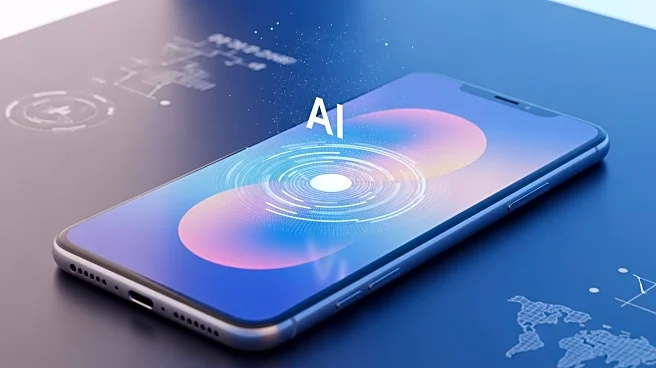What's Happening?
OpenAI has released its Sora app on Android, following its initial launch on iOS. Sora is a video generation model that allows users to create hyperrealistic videos using prompts and existing images. The
app, which was first available in the US and Canada, has now expanded to several Asian countries including Japan, Korea, Thailand, Taiwan, and Vietnam. The app offers features such as video creation in seconds, collaboration, and community sharing, allowing users to remix and personalize videos. The Android release aims to broaden access to Sora's capabilities, which have gained popularity for their realism and social media appeal.
Why It's Important?
The expansion of Sora to Android devices marks a significant step in making advanced AI video generation technology more accessible globally. This development could impact various sectors, including entertainment, marketing, and social media, by enabling users to create and share highly realistic videos with ease. The app's ability to generate videos with unprecedented realism may also raise discussions about the ethical implications of AI-generated content, particularly concerning authenticity and misinformation. Businesses and content creators stand to benefit from the app's capabilities, potentially transforming how video content is produced and consumed.
What's Next?
With the Android launch, OpenAI is likely to see increased user engagement and content creation on the Sora platform. As the app becomes available in more regions, OpenAI may continue to enhance its features and expand its reach. Stakeholders such as content creators, marketers, and social media platforms may explore new opportunities for collaboration and innovation using Sora's technology. Additionally, discussions around the ethical use of AI-generated videos may intensify, prompting potential regulatory considerations.
Beyond the Headlines
The introduction of Sora on Android could lead to broader cultural shifts in how video content is perceived and valued. As AI-generated videos become more prevalent, there may be a growing need for media literacy education to help users discern between authentic and AI-created content. Furthermore, the app's community features could foster new forms of digital interaction and creativity, influencing social media dynamics and user engagement.










